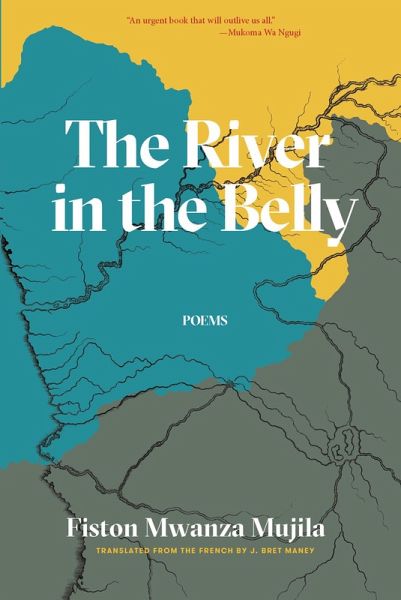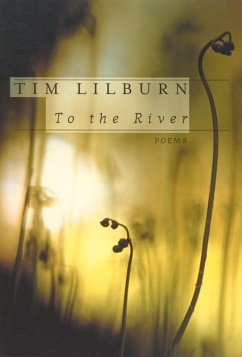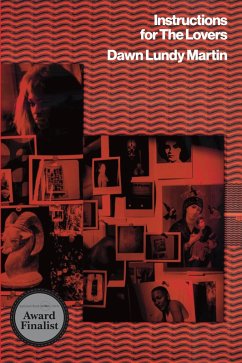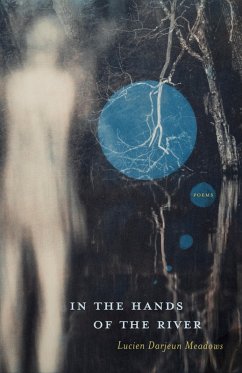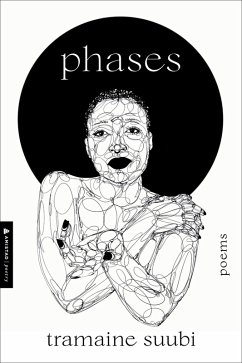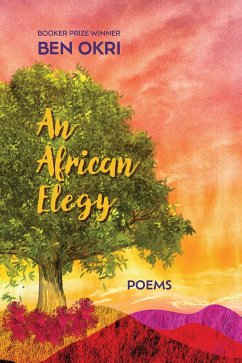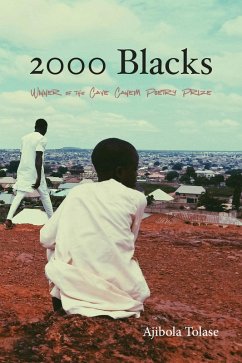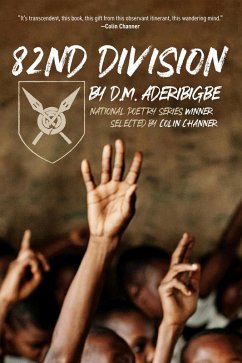Finalist for the Luschei Prize for African Poetry and the Sarah Maguire Prize for Poetry in Translation
"In this raucous, electrifying what-is-it?-memoir, broken novel, poem series? or is it mainly a protest against the way that dreams can vanish like migrating birds?-Fiston Mwanza Mujila opens every stopcock that holds back his lust for life. His words rush forward in punctuated swells- like the Congo River he so often mentions. International in his imagination, wary of spells cast by sorcerer-crocodiles and waitresses, Mwanza Mujila masters a visceral, multilingual, song-spiked account of human experience that no one will forget." -Forrest Gander, Pulitzer Prize-winning author of Be With
"This is, at its source,
an expat author's declaration of identity, and just as the river has formed Mr. Mujila, he has laid a claim to its legacy."
-Sam Sacks, Wall Street Journal"Composed of 101 numbered 'solitudes,' Mwanza Mujila's collection is equal parts hallucination, augury, and crônica, with fragments that appear out of order and are often enigmatically brief, grotesque, and surreally humorous."
-Jay G Ying, Harriet Books"Tram 83, the first of Fiston Mwanza Mujila's works to appear in the United States, made for a thrilling read. Now he's returned with a new collection inspired by the Congo River, giving readers an even greater sense of the range of his work."
-Vol. 1 Brooklyn "After all the riches that have been torn from his country by foreigners, asks this remarkable poet, 'will they also find a way to haul away the Congo River and use it as room freshener?' Mwanza Mujila's raw and passionate work is an authentic voice from a long-suffering land whose story we are too often accustomed to hearing only from outsiders."
-Adam Hochschild, author of King Leopold's Ghost: A Story of Greed, Terror, and Heroism in Colonial Africa"Those already familiar with
Tram 83 will recognize some of its precursor features in
The River in the Belly, first published in 2013. The collection is full of cryptic images of sorrow and lamentation drawn from the African landscape but also fully augmented with others from a consciousness shaped by exile. The beauty of Mwanza Mujila's poetry comes from the telescoping of pain and despair into a language of unexpected juxtapositions. The resemblance with Dambudzo Marechera is not accidental, for they both attempt to hurl language into the abyss and to decipher the vague and mangled echoes that return to them in that act. A new and provocative contribution to African Literature."
-Ato Quayson, Stanford University"The poems show the Congo River running through Mwanza Mujila's veins as he contemplates mortality, (in)voluntary exile, the resource curse and the physical grandeur of the river itself.... These translations are a must-read."
-Johannesburg Review of Books, Efemia Chela"Translation is the ultimate tribute, a tributary to the river of beauty and this is so present in
The River in the Belly. This is an urgent book that will outlive us all, but we can excavate it now. There is anguish. But for each wound Mwanza Mujila opens and tenderly kneads, he also sutures with a deep love. We must listen!"
-Mukoma Wa Ngugi, author of Logotherapy and Black Star Nairobi"This book ... is a masterpiece of poetic imagination and excellence. It is a melancholic meditation on the Congo River and the huge country named after it, while also expressing from the poet's new home in Austria his homesickness, solitude, and nostalgia for the good things he remembers from his country of origin such as the family home in Lubumbashi, food, beer, local brews, football (soccer) and music, particularly Congolese rumba. Using the mighty river as a metaphor for his own connection to the DRC, known during his first sixteen years as Zaire, Mwanza Mujila depicts a bleak picture of the regimes of Laurent and Joseph Kabila."
-Georges Nzongola-Ntalaja, author of The Congo from Leopold to Kabila: A People's History"More subtle, mischievous poetics from Fiston Mwanza Mujila, this time mediated by the big river, unexpected materialities and anguish, mediated by solitude with some prose segments and a very fine translation. A book urgently wondering about deprivation, desire, violence, animal-human relations, exile, music, madness, and the diverse pulses of Congolese urbanities. Exquisite and profound, and eminently teachable too."
-Nancy Rose Hunt, author of A Nervous State: Violence, Remedies, and Reverie in Colonial Congo"Fiston Mwanza Mujila... thinks back not only to his native river, but also to the almost constant multi-agent civil war that has eviscerated the Congo over the past decades: it is both the bloodiest conflict of our time and one of the least noticed. Maney very capably conveys the intonations and registers of the original in this faithful and beautiful rendering."
-Eugene Ostashevsky, judge for The 2019 Asymptote Close Approximations International Translation Contest"A travelogue featuring dyspeptic saints, sophic beasts and, above all, an all-consuming river. Wonderfully subversive."
-Jason Stearns, author of Dancing in the Glory of Monsters: The Collapse of the Congo and the Great War of Africa
Praise for Tram 83:Winner of the Etisalat Prize for Debut African Fiction 2015 Nominated for the Man Booker International Prize 2016
Winner of a French Voices Award"An exuberantly dark first novel . . . Evoking everyone from Brueghel to Henry Miller to Celine, Fiston plunges us into a world so anarchic it would leave even Ted Cruz begging for more government."
-John Powers, NPR's Fresh Air w/ Terry Gross"A high-velocity debut . . . The writing has the pulsing, staccato rhythms of Beat poetry and Roland Glasser has exuberantly harnessed that energy in his translation from the French."
-Sam Sacks, Wall Street Journal"At once a grim account of neocolonialism and a comic tale of late-night urban mayhem, this vigorous, hip and brilliant work takes a while to warm up but ends up gripping like a vice."
-James Smart, The Guardian"In this visceral, fast-paced debut novel, acclaimed Congolese poet Mujila examines life in a central African state plagued by instability... Rapid and poetic, Mujila depicts a province where 'every day is a pitched battle'... The central characters fight to change the paths laid before them, desperate to rebel against a fate imposed by life in a consumptive environment. Mujila succeeds in exploring themes of globalization and exploitation in a kinetic, engaging work."
-Publishers Weekly